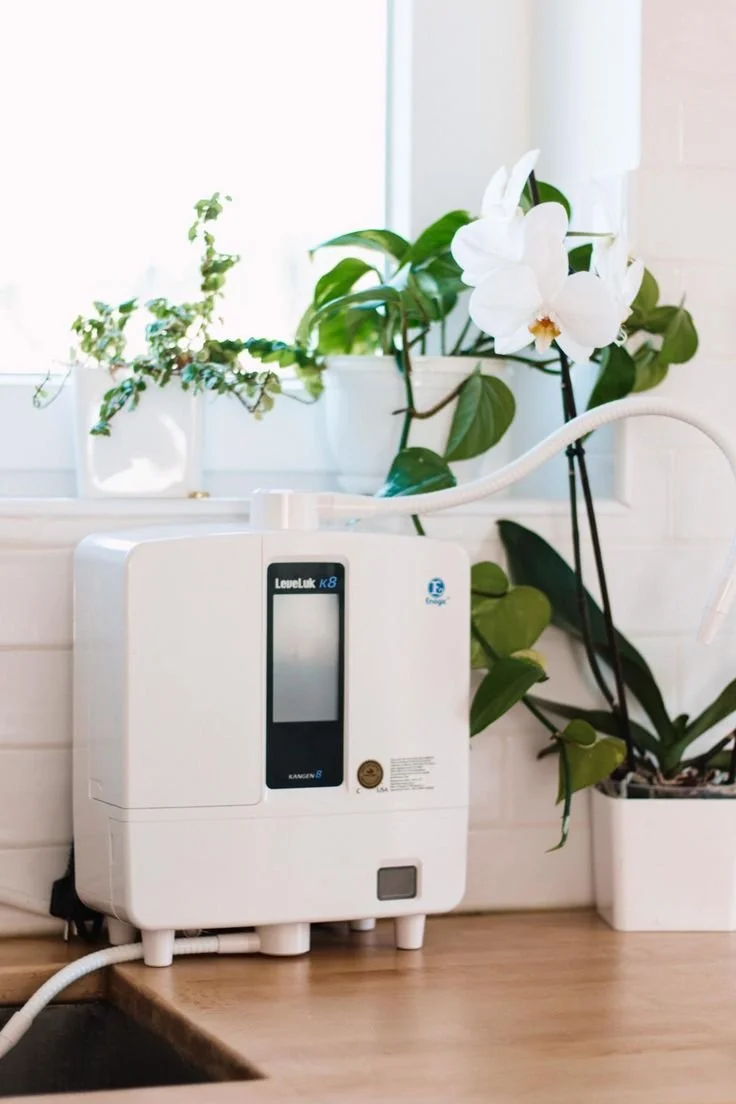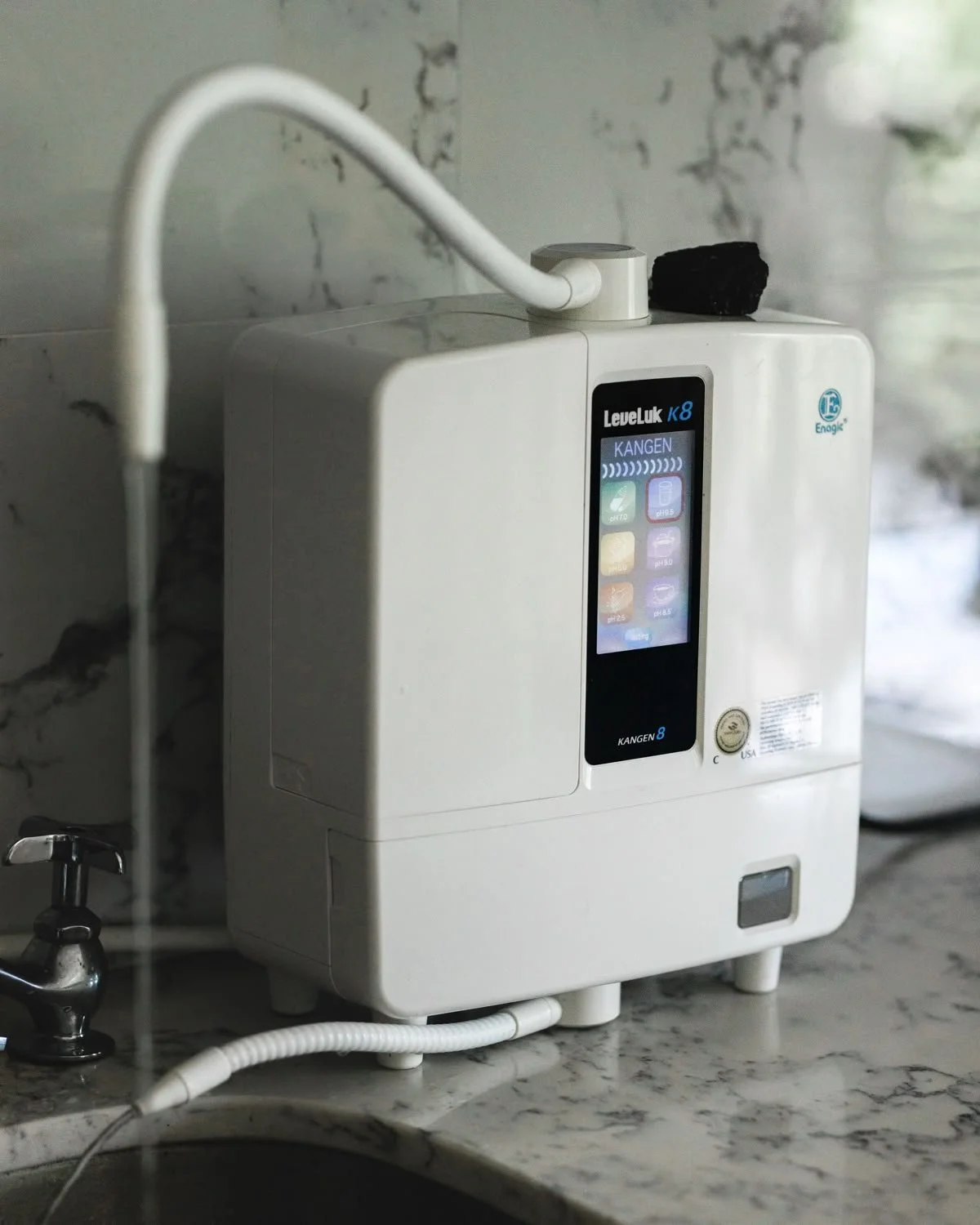
Water Wars: How Different Waters Compare
In today’s health-conscious and eco-aware world, the water you choose matters more than ever.
This page unpacks the facts and myths behind the most common water options — so you can make the healthiest, most cost-effective, and planet-friendly choice for you and your family.
Here’s how popular water types stack up — and why thousands trust a Kangen Water® Ionizer to replace them all.
Reverse Osmosis (RO) Water
Pure but incomplete.
RO systems filter out almost everything — including healthy minerals your body needs. This creates “dead” water with no structure or antioxidants, and wastes gallons of water in the process.
✔️ Cost: Better than bottled over time
❌ Downside: Strips minerals, wastes 3–5 gallons for every gallon produced
Store-Bought Alkaline Water
Trendy but not what it seems.
Many bottled alkaline waters are artificially treated and lose their “alkalinity” quickly. They don’t deliver true ionization or molecular hydrogen — plus, all those bottles create waste and cost more than you think.
❌ Cost: High per bottle, adds up fast
❌ Downside: Plastic waste, surface-level benefits
Bottled Water
Convenience at a huge cost.
Grab-and-go bottled water is the easiest way to stay hydrated — and the most expensive over time. Most brands are just filtered tap water in plastic, with added microplastics and chemicals from the bottle itself.
❌ Cost: Thousands per year
❌ Downside: Major contributor to plastic pollution
Filtered Water
A small upgrade, with hidden costs.
Pitcher or fridge filters remove some bad taste and chlorine, but they rarely catch pharmaceuticals or restructure the water. Plus, replacing filters every few months adds up.
✔️ Cost: Cheaper than bottled
❌ Downside: Ongoing filter expense, still basic hydration
Tap Water
Good for the budget, questionable for your body.
Tap water is affordable and convenient, but often carries chlorine, heavy metals, and microplastics. Quality depends on your local pipes and treatment plants — and isn’t guaranteed.
✔️ Cost: Lowest upfront cost
❌ Downside: Potential contaminants, no added health benefits

Why a Kangen Water Ionizer Wins
One Device.
Many Solutions.
Instead of paying for bottled, filters, and fancy pitchers, invest once in a medical-grade ionizer that:
Transforms tap water into antioxidant-rich, structured, hydrogen-infused water
Delivers multiple pH levels for drinking, cleaning, cooking, beauty, and sanitizing
Lasts 30+ years, saving you thousands while reducing plastic waste
Cost Savings: One purchase = decades of savings.
Eco Impact: Say goodbye to single-use bottles and unnecessary filters.
Shop Products
Shop Products
FreeFlowCo. is a certified representative for the leading Ionizer Manufacturer in the world.
Behind the Bottle: What You’re Really Drinking
Click to watch & see for yourself.
Let’s Talk About Microplastics
A four-year study by the Natural Resources Defense Council (NRDC) found that 1 in 3 bottled waters tested contained contamination levels exceeding legal limits. And that’s not all — the bottles themselves can leach harmful chemicals like phthalates, BPA, BPS, and PVC into the water you drink.
In 2018, Time Magazine reported on a global study of over 250 bottled waters across 11 brands and 9 countries, revealing that over 90% were contaminated with microplastics — tiny plastic particles now commonly found in our food, water, and even our bodies.
Does Your Water Make Cents?
Let’s talk numbers.
Bottled water might seem convenient, but over time, it adds up — fast. Whether you’re reaching for name brands like SmartWater, Fiji, or Essentia, the long-term cost of drinking just 2 gallons a day can climb into the tens of thousands.
📊 Here’s a 15-year breakdown for popular bottled water brands:
Plastic bottles = no antioxidants, potential carcinogens from packaging, and over 40 million bottles ending up in landfills and oceans every day.
There’s a Better Way
One home system gives you 30+ years of fresh, antioxidant-rich water — with no bottles, no waste, and thousands saved in the process.
Better for your body, your wallet, and the planet.














